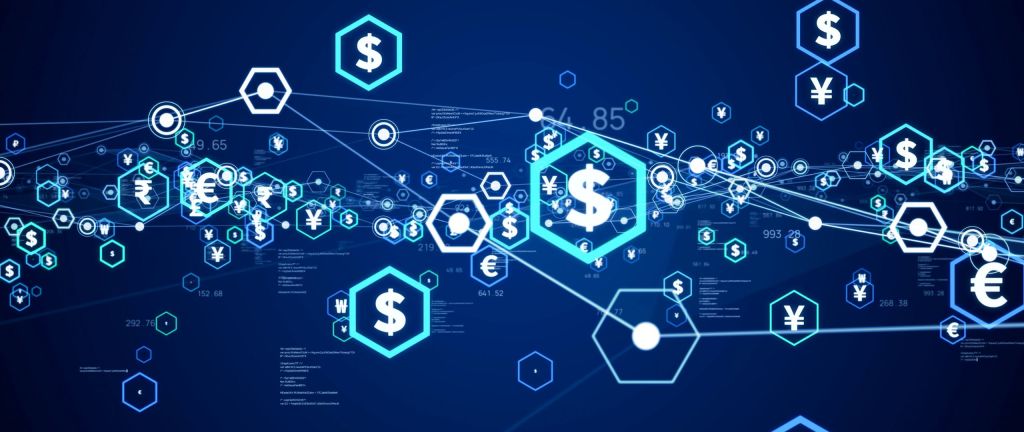There has been a tremendous technological revolution in the past few years that has impacted various aspects of business operations. Accounting has also been affected by this change and has experienced a dynamic shift in terms of productivity.
Stacks of papers have now been replaced by apps, analytics and accounting technology, helping accountants make the giant leap from task-oriented projects, to becoming business advisers.
Access to smart software programs that can perform tedious tasks quickly, along with automated tools, has made financial accounting operations efficient, organised and more productive.
Read on to learn just how much technology has impacted this industry.
How has Technology Revolutionised Finance and Accounting?
While there have been new technical developments over the years, recent advances have entirely restructured accounting processes.
In today’s fast-paced digital world, technology has not only changed the way we communicate and conduct business but has also completely transformed the finance and accounting industry.
This technological revolution has brought about significant advancements in the field, making it more efficient, accurate, and accessible than ever before.
Cloud-based systems are a popular technology in accounting that are used by various firms to streamline information and facilitate easy access. This way, accountants can access important data from anywhere, unrestricted by time and space through the web.
This also facilitates the analysis of data in real-time as storing large files is now possible through cloud computing which offers unlimited storage space.
Apps and analytics are amongst the new accounting technology that has surfaced in the past few years. These apps allow accountants to conduct operations such as accessing financial data and tools on mobile devices.
These tools remove human error and provide businesses with timely financial information and cash flows, which can be produced by simply filling in a form or at the click of a button, streamlining operations and reducing administration costs.
One of the main aspects of accounting – client and accountant interaction – has also changed as on-site consultations are no longer required and both parties can access real-time data simultaneously online.
What is the Relationship Between Accounting and Technology?
The relationship between accounting and technology is symbiotic, each driving the other’s progress. Technology has become an integral part of modern accounting, enabling professionals to perform their tasks more effectively.
The impact of technology on accounting has become so noticeable that it has now redefined and diversified the role of an accountant.
Major time-consuming tasks can now be done at the click of a button, and accountants can now successfully analyse data to make better business decisions or strategic plans for their clients.
Industry analysis is now a smooth process as everyone is able to view and interpret data remotely. Enhancements in accounting software and applications have made the work of accountants specialised.
Here are some key areas where technology has reshaped the accounting landscape:
Automation in accounting
One of the most significant changes brought about by technology is automation in accounting processes. Tasks that were once manual and time-consuming, such as data entry and reconciliation, are now automated.
This not only saves time but also reduces the risk of errors, making financial data more reliable.
According to a study by Deloitte, 94% of finance professionals believe that automation in accounting has improved the accuracy of financial data. (Source: Deloitte)
Accessibility of accounting data has improved
Cloud computing technology has revolutionised the accessibility of accounting data. With cloud-based systems, accountants can access financial information from anywhere, at any time, using any device with an internet connection.
This accessibility streamlines collaboration and allows for real-time data analysis.
In a study conducted in the United States, it was seen that 92% of accountants believe in the value that new technology brings to their company. The report states that the cloud will be the location of 82% of the accounting data in the near future. (Source: Sage)
Automated data entry
The introduction of accounting apps and analytics has simplified data entry and financial record-keeping. Popular accounting software, like QuickBooks, Xero, and FreshBooks, have made it easier for businesses to manage their finances.
These tools not only reduce human error but also provide businesses with timely financial information.
Research by Statista shows that 64% of small businesses use accounting software to manage their financial records. (Source: Statista)
Accounting data is more accurate
With automation and advanced software, accounting data has become more accurate and reliable. This accuracy is essential for businesses to make informed decisions and comply with regulatory requirements. Technology has also made it easier to organise audits efficiently.
A survey conducted by EY found that 78% of organisations believe that technology has improved the accuracy of their financial reporting. (Source: EY)
Better decision making
Technology has shifted the role of accountants from data entry to data analysis. With automation handling routine tasks, accountants can focus on analysing financial data and providing valuable insights to businesses. This leads to better decision-making and strategic planning.
A report by Sage indicated that 58% of senior finance executives desire to increase their operational efficiency with data-driven insights and decisions. (Source: Sage)
Social media is also among one of the most prevalent technologies in accounting and is reshaping many functions.
As a global platform of engagement, this technology is favoured by big names in the industry like Gary Boomer, CEO of Boomer Consulting Inc. who is using social media to connect with current and potential clients.
Firms are constantly seeking new ways to market themselves and adding social media to their business development strategy has helped many target their goals.
The role of technology in accounting is gigantic, as it transforms the old way of accounting into a more accurate and efficient model.
Furthermore, it’s now much easier to organise audits in a highly efficient manner.
In summary, technology in accounting has revolutionised the finance and accounting marketplace by automating processes, improving data accuracy, enhancing accessibility, and enabling better decision-making.
Aspiring accountants and finance professionals can benefit from embracing these technological advancements by staying updated through professional courses in accounting and finance.
Accountants must embrace all new changes that technology brings to ensure that their industry knowledge remains relevant. Gaining new knowledge is achievable through professional courses in accounting and finance provided by the London School of Business and Finance in Singapore (LSBF). Become an asset to global employers by signing up today!
FAQs
Q: What are some important accounting terms I should know?
A: Here are a few important accounting terms you should know:
- Assets: The sum total of all resources owned by a business such as cash, inventory, and property.
- Liabilities: All the obligations or debts that a business owes to external parties.
- Revenue: The total income generated from the sale of goods or services.
- Expenses: Costs incurred by a business in its day-to-day operations.
- Balance sheet: A financial statement that shows a company’s financial position at a specific point in time.
Q: What are the different types of accounting?
A:
- Financial accounting: Involves preparing financial statements for external stakeholders.
- Managerial accounting: This type of accounting provides internal management with financial information for business decision-making.
- Tax accounting: This is the branch of accounting that deals with all tax-related matters. Tax accounting also ensures compliance with tax laws.
- Auditing: Involves examining financial records for accuracy and compliance.
- Forensic accounting: Investigates financial discrepancies and potential fraud.
- Cost accounting: Analyses costs associated with production and operations.
Q: How do I maintain accounting accuracy?
A: Maintaining accounting accuracy is crucial to ensure reliable financial data. Here are some tips:
- Implement robust accounting software
- Regularly reconcile accounts and verify transactions
- Keep detailed records of all financial transactions
- Perform regular audits to identify and rectify errors
- Train and educate accounting staff on best practices
Q: What is the difference between accounts payable and accounts receivable?
A: Accounts payable (AP) and accounts receivable (AR) are two fundamental aspects of accounting:
- Accounts payable: Represents money a business owes to its creditors or suppliers for goods or services received but not yet paid for.
- Accounts receivable: Refers to money that is owed to a business by its customers or clients for goods or services provided but not yet received.
This article was originally written by Nandita Kaushal and edited by Anisa C.



